
The Indian Association of Palliative Care Conference, back in Kerala
![]() Dr Mhoira Leng
Dr Mhoira Leng
![]() 20th May 2019
20th May 2019
21 years after the first time I stepped into Kerala, India to attend the Indian Association Palliative Care conference I am back in beautiful Kerala. Little did I realise that this meeting with the team in Calicut with Drs Rajagopal, Suresh Kumar, Gayatri and Chitra would be the start of an incredible adventure personally and professionally. In these intervening years I have had the amazing privilege of working with colleagues who are now friends, and students who are now leaders. I have travelled to 17 states, eaten amazing food, negotiated trains, planes and autos and revelled in the wonderful fabrics, spices and colour. I have seen palliative care seeded and grown, met and worked with inspiring pioneers, dedicated volunteers and community members, inspiring young researchers and academics and more than a few elephants and rhinos!! I have watched the monsoon enfold and see the devastation of floods, I have floated on backwaters, swum in crashing waves, visited places of incredible history and culture and climbed majestic mountains. I have seen people suffering unimaginable poverty and pain and those who fight with compassion and determination to make a difference and not leave any person abandoned. I have seen the small daily miracles of costly love. I have visited, lived, loved, and felt part of this amazing country, subcontinent and people. Thank you, India, and to the many people I have had the joy of learning from and working alongside.
The IAPC conference has grown and developed having a different character each year as it moves from state to state, from north to south, east to west. Those of us attending over the years tend to date our experiences by saying ‘was that the year of Guwahati or Delhi…no it was Pune or Hyderabad’. This year, 10 years after I was in the Scientific Committee of the first Kochi conference, I was honoured to be back on the team, this time led by dear friend Prof Chitra Venteteswaran. The venue in the beautiful Aeli Hills, Aluva had strived hard to recover after the devastating floods of 2018 and the organising committee worked hard. The theme of the conference in Feb 2019 was ‘Voices in palliative care; ensuring quality, creating solutions’ and you can find the executive summary and abstracts including our presentations in the IJPC Special Supplement April-June 2019 Volume 25 | Issue 2 (Page Nos. 169-357). So many innovations from augmenting the voices of those with different abilities, LGBTQ, tribal settings, children, elderly, humanitarian settings and mental health. There were opportunities to discuss innovative multidisciplinary working, meet experts and discuss developments such as legal changes for end of life care, new definitions for palliative care and engage the media.
It was a joy to have Cairdeas scholars Dr Peace Bagasha presenting her work on end stage renal disease and Ms Vicky from Adjumani and Peace Hospice sharing in a wonderful session on humanitarian settings… and we won 3 prizes along with Prof Julia Downing from PcERC/ICPCN!!! I shared work from Gaza and others the incredible impact the palliative care community in Kerala had in supporting those affected by the 2018 floods. IAPC central council have agreed to take this forward as a working group for India.
These south-south interactions give rich opportunities for mutual learning, exposure to an international forum and a chance for cultural exchange. Vicky has shared more in another post including our post-conference chill time by the Arabian sea. I will also share more about visits to Mizoram and updates from BCMCH.
Looking forward already to Feb 2020 when we reconvened back in Guwahati, Assam.
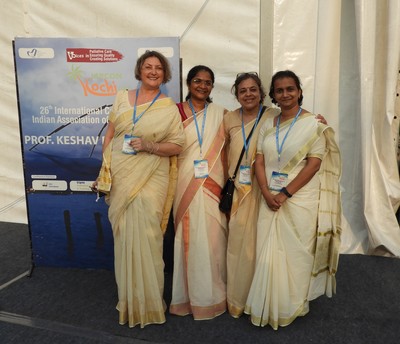
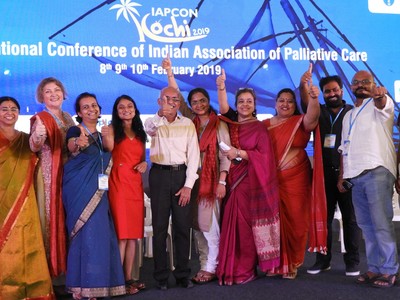
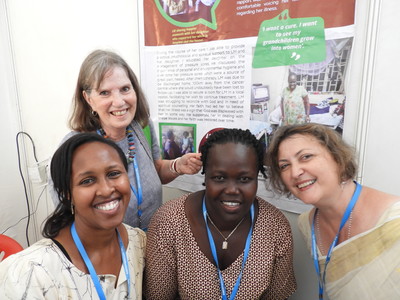
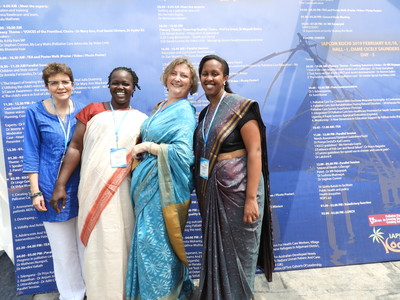
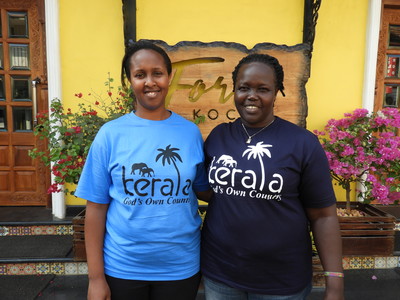
The Joy of Conference
![]() Cairdeas
Cairdeas
![]() 20th May 2019
20th May 2019
Vicky Opia is a senior palliative nurse specialist working at Peace Hospice in Adjumani, Uganda. Vicky champions palliative care in the communities and refugee settlements of Adjumani District and was in the first cohort of Ugandan nurses to receive palliative care leadership training as part of a joint project from Cairdeas and the University of Edinburgh. Cairdeas recently sponsored Vicky to attend this year's Indian Association of Palliative Care's International Conference (IAPCON2019). Vicky writes about her experience of the conference in the Aeli Hills in Kerala.
Kerala, my dream land; Yes, finally my dream has come true. Kerala, God’s own country, has been a home I had always longed to be in my life. Its rich natural resource, the Arabian sea, the thick forest and diverse cultural backgrounds which the local community benefit from to sustain their lives was admirable, like the hydrological or eco water conservation; simple and affordable utilization of fish pond water in the majority of homes that we visited.
Dear colleagues, I have been challenged, back home we have natural water body (the River Nile) which is traditionally used for fishing and transportation, but it’s not being used to generate income for its people, this because of inadequate knowledge. Friends? I believe if our people were empowered to utilize the natural resource for fishing and horticultural practice, then quality of life for patients and family would have improved, because vegetables contain all the minerals and vitamins that the body needs, and fish could be sold to purchase other items that patients and family need for improved quality of life.
I love the beautiful natural scenery of the coconut plant from which oil is extracted for nourishment, also the natural fresh coconut fruit juice from which families earn their living. Horticulture (growing of green vegetables) is being practiced by drawing sea water in at almost all home sites. To me it’s not labour exhausting, meaning one or two persons can contribute towards economic support of the family, and it’s quick and time saving.
What triggers my mind is how the natural resources would contribute towards food and nutrition, healthier lifestyle dynamics, the eco spirituality and medicinal component, ‘my travel shall change the perspective of our community’.
The Conference; To many people conference means a platform where there is a diverse and coordinated effort for positive action. To me, it’s a combination of education, relaxation and a time for renewing friendship, and perhaps management of burn out.
The 26th Edition of the Indian Association of Palliative Care's international conference had the theme 'Voices in Palliative Care: Ensuring Quality; Creating Solutions'. This was rightfully chosen because many times patients and families with palliative care needs are not offered the opportunity to share experiences, yet this could provide for policy reforms and reviews in palliative care.
For example, the Narcotic drug and Psychotropic substance Amendment (NDPS) Act of 2014 throughout India ensured the availability of essential Narcotic drugs (ENDs) at an affordable cost. This means there shall be an improvement from the less than 2% access to pain and palliative care in the country.
Meanwhile in Uganda, to improve access to opioids, the National Drug Authority of Uganda officially registered the use of oral morphine as a palliative treatment (1993) and this treatment has been prepared at HAU ever since. The Ugandan Government has also subsidized Joint Medical Stores (an NGO pharmaceutical organization that supports both public and private health facilities) to reconstitute powdered morphine. A statute to expand the range of providers who can prescribe narcotic analgesics was an important milestone in overcoming problems caused by the shortage of physicians in Uganda. According to this statute, nurses and clinical officers who are ‘certificate in specialist palliative care’ are authorized to prescribe and supply morphine for pain and palliative care only.
I have learnt that the patients’ voice is central for educating all stakeholders, including patients and caregivers, further guiding them through important life choices and quality of life concerns.
Friendship and networking; The saying, ‘a friend in need is a friend indeed’ did not only apply to others but I too, as Dr Mhoira has been my lecturer, mentor and a friend indeed. She taught me in class while in Uganda, together we have worked and expanded palliative care to other parts of the world. While in Kerala I have met dozens of friends, the likes of Dr Chitra who patiently waited for my arrival at the immigration office, Dr Shoba Nair with whom I had the first spiced meal while in Kerala, and who gave me the first welcome in her house with food full of spices, Dr Lukas with whom we relaxed at the Arabian sea and all those who admired black as beauty as demonstrated by the request of photo taking. I was a celebrity because of my natural black colour, ‘friends do not bleach yourself’ because somebody wished she/he had that colour.
The conference provided me with a great opportunity to network. Palliative care specialists from other parts of the world have become a valuable resource for referrals and best practices. I used to avoid experts in palliative care for that they could discover my competitive advantage actually limited my own success, but I have realized that collaboration is the only way to approach networking. Most people have been helped through conference to uncover ideas and spark inspiration when they get to know each other on personal level.
Educational aspect; No matter how experienced you have been in palliative care, you have new things to learn. Working in a district hospital and a small hospice can many times be isolating and without exposure to a variety of views, I feel we may be missing current knowledge and skills that can impact future results. The educational aspect of this exposure made me include other groups of the vulnerable community (mental health) in palliative care in both Peace Hospice and the hospital palliative care unit in Uganda, for example we had a radio talk show on local FM station on palliative care for mentally ill patients.
At a conference, you get to know about the latest findings in the field of palliative care even before it is published in journals. Although you should not take every piece of information you hear from a conference as gospel truth until you are able to look through the methodology and findings for yourself. But in a conference you get to have a peek at what others are saying and working on. This was a great inspiration for me to undertake for my own research while back home.
Relaxation?; I count part of my trip to Kerala as stress management. Because of the many encounters and agony of pain from patients, at times we need to switch off our minds from these miseries to creating our own happiness. The Arabian sea I read about in books became home for 36 hours as we were in Cherai beach. Many times I was faced with numerous responsibilities and tasks, or the demands of an illness, but ‘relaxation has today reduced my anger and frustration’. The waves of the sea swept off all my stress, renewed my mind, and made me younger for the next world to come.
Political will and commitment; In Kerala, the state designates a space for integrated community outreach. Once a week a team of health professionals from all disciplines take their services closer to the people. This creates an opportunity for patients to access comprehensive health services. Patients feel valued, reducing stigma, and it’s also a forum for good networking with friends. Because of this, patients can receive longer care. We had a patient who had 21 cycles of chemotherapy, and another with spine injuries who had been on life support for more than seven years with all the sophisticated gadgets at home with the parents happily managing her.
I have learnt that to deliver a successful palliative care service we need a joint effort because everyone has a unique role to play for the patient’s quality of life. The health worker does the technical work while the politicians come to formulate policies.
The cultural practices; Culture is still deep rooted in Kerala, while in the political centre (place for patient’s management and care) well-dressed couples come bare footed because they want an attachment with Mother Earth and caring for the chronically ill is everybody’s responsibility. As much as culture impacted well in management of palliative care patients, I recall one outreach we made in Shanthi Bhavan Missionary Base home-care centre for mentally ill patients. Out of the 7 patients seen, 5 were female who had issues with their mother in-laws. While having a discussion one of the patients broke down in tears and said she would not go back home because her mother in-law did not understand her situation. This is where the politicians and policy makers should come and gradually change these practices to improve the quality of life for mentally ill patients.
Read more about Vicky Opia's work at Peace Hospice Adjumani in Uganda, and more about the IAPCON2019.
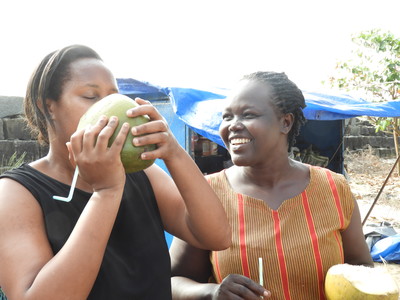
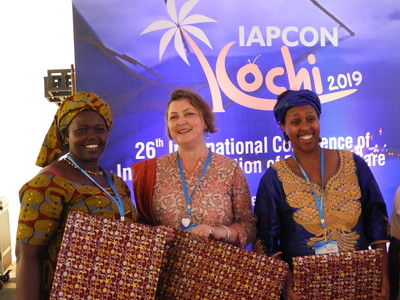
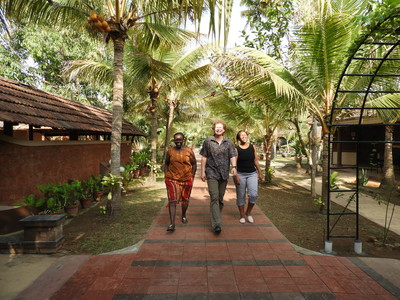
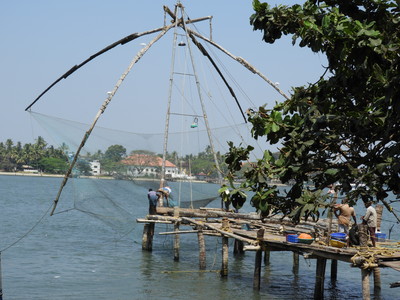
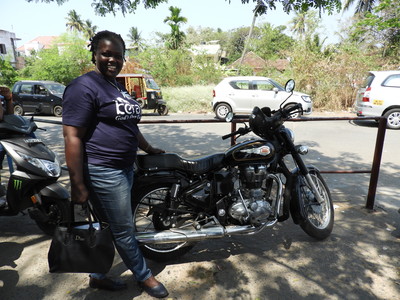

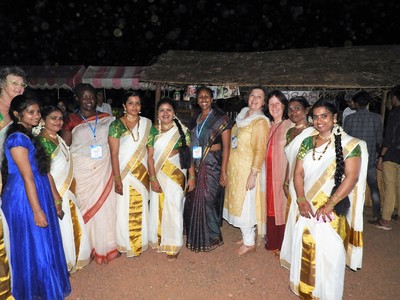
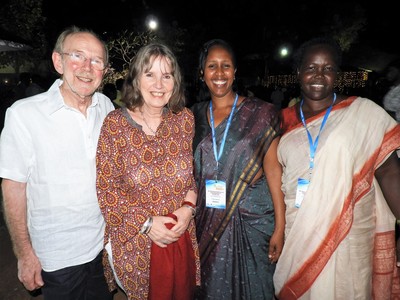
A vision of palliative care in India from the Aeli Hills
![]() Cairdeas
Cairdeas
![]() 17th May 2019
17th May 2019
The 26th International Conference of Indian Association of Palliative Care, or more commonly known as the IAPCON 2019, was held on 8th to 10th February this year in Kerala. The conference was a huge effort but also a major success, with over 1,000 people attending from 16 countries from around the world. The theme was ‘Voices, Ensuring Quality, Creating Solutions’. This allowed for a wide variety of speakers both national and international, from different disciplines within the palliative care family. This included perspectives from the ‘voiceless’, with excellent contributions from palliative psychiatry. Cairdeas India faculty lead, Chitra Venkateswaran specialises in palliative care and mental health and is now working for the Believers Church Medical Hospital as Head of Department for Psychiatry with a joint round in palliative care. You can read Chitra’s conference editorial at the Indian Journal of Palliative Care.
Cairdeas was represented at IAPCON2019 in several ways. Mhoira sat on the scientific committee, which worked hard to ensure a range of topics to cater for the multidisciplinary nature of palliative care. We presented in the main session, and abstracts were all well received. At the IAPC central council Mhoira submitted a proposal to begin a working group looking into palliative care in humanitarian settings in India. This seemed particularly significant due to the location of the conference in Kochi, where they recently suffered a devastating natural disaster in the form of floods. The proposal was approved by the committee, so we look forward to seeing how this working group progresses.
Cairdeas scholars Vicky Opia and Peace Bagasha performed incredibly well at the conference. They contributed to 3 parallel sessions, 3 posters and 3 oral presentations along with Julia Downing from the Uganda team. We were delighted to win 3 prizes for oral presentations. Peace also travelled to Hyderabad to review renal transplantation as part of her other roles. Vicky spent some time visiting Mehac and Kochi Government Hospital community programmes.
With over 1,000 people present at the conference, representatives from around the world and across the palliative care sector, and a wonderful display of Kerala culture, the future looks bright for palliative care in India.

The Scientific Committee at IAPCON2019
